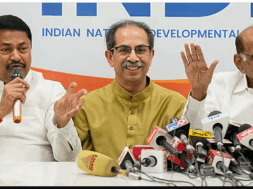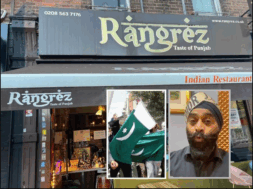
Roving Periscope: Broke, Sri Lanka crushes protesting students, spurs professionals’ brain drain
Virendra Pandit
New Delhi: Unable to face economic and political crisis any longer, those who can are moving out of Sri Lanka as the South Asian country, where a mass uprising since March forced the dominant Rajapaksa family out of power and country.
According to the media reports, thousands of Sri Lankans are fleeing the country in a mass brain drain. Political instability and uncertainties about the future have exacerbated the professionals’ exodus from the island country, which is facing its worst-ever economic crisis in seven decades after Independence from the British in 1948.
As the buffeted Sri Lankan government grapples with the unprecedented situation, the scale of the brain drain, according to preliminary data and business leaders, was serious enough to delay any economic recovery.
But the cascading effects of a post-pandemic meltdown, and the Russian war against Ukraine, are not limited to Sri Lanka. From Tunisia to Haiti to Pakistan, spiraling inflation is driving millions into poverty worldwide, sparking protests and mass unrest, with even some rich countries feeling the squeeze.
Since March, the Sri Lankans have faced severe shortages of fuel, food, cooking gas, and medicines, among others, because of fast-dwindling foreign currency reserves. Food essentials such as milk powder ran short, and unrest swelled against the powerful Rajapaksa clan, which was ousted from power after a mass uprising.
Food prices soared, with year-on-year food inflation at over 90 percent in July and consumer price inflation at 60.8 percent year on year. Many people lost faith in their government and feared that rising nationalism would enthrone the unworthy at the polls, hastening the middle-class exodus.
Hence the rush to a better life by many of the island’s most skilled professionals–doctors, software engineers, scientists–creating a worrying skills gap for the 22 million left behind.
“There is an emerging trend of departure of skilled migrant workers,” said Bilesha Weeraratne, head of Migration and Urbanization Policy Research at the Institute of Policy Studies, the reports said.
The first six months of 2020 and 2021 recorded 40,581 and 30,797 departures, respectively, but the first six months of 2022 had registered about 113,140 departures, she said, citing government data.
In the first five months of 2022, Sri Lanka issued 288,645 passports compared with 91,331 in the same period last year.
To keep talent, local IT companies supporting services for big foreign firms–like the London Stock Exchange, Qantas Airways, or Boeing–began pegging local salaries to foreign currencies. Such outsourced services, mostly in technology, are one of the island’s biggest foreign exchange earners. But the currency shift has helped very little.
For example, the media reported that WSO2, a Colombo-based software solutions firm with 850 full-time employees, lost about 10 percent of its workforce this year as staff left for work or study.
“Over half of them said they want to migrate. We will only know the real impact in another six months,” the company’s CEO, Sanjiva Weerawarana, said, adding his firm is now offering a matching salary to retain talent.
During the meltdown, the government also rolled out a “Work Abroad” program in June to earn more remittances while pruning public sector expenditure.
Remittances are an important source of foreign exchange for Sri Lanka. By 2018, the country received over USD 7 billion in remittances, nearly 8 percent of the country’s GDP, according to IPS data. Its other big foreign currency earners are the garment industry, IT, tea, coconut, rubber, spice, and tourism.
The fallout from the fuel shortages, which cut electricity for hours to industries, and businesses as well, was the key trigger for the professionals’ exodus in droves.
Meanwhile, the government is trying to check mass protest rallies in Colombo, even by arresting student leaders under the dreaded Prevention of Terrorism Act.
On August 18, the police arrested nearly 20 protesters at a march organized by the Inter-University Students’ Federation against alleged state repression and the spiraling cost of living.














